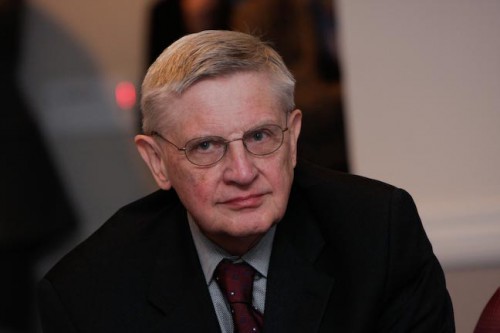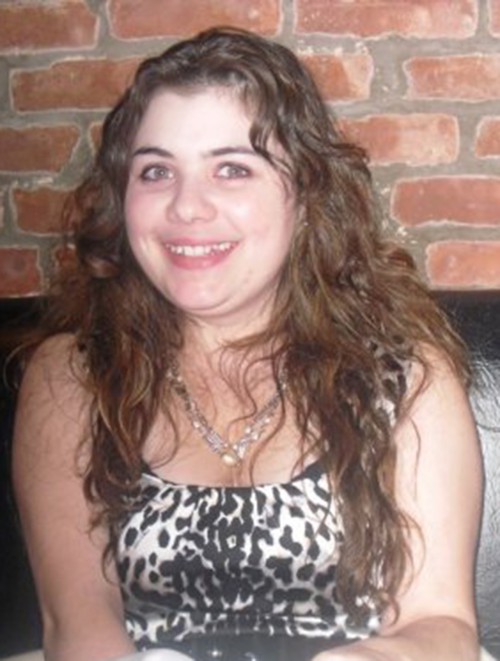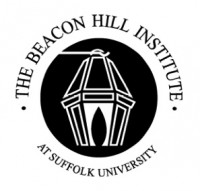By: Alex Hall and Ally Thibault
In a five-year period from 2006 to 2011 Suffolk University received “upwards of a million dollars” in funding from the conservative billionaire Koch brothers, according to economics professor David Tuerck — a fact that has irked activist and Suffolk alumna Kalin Jordan.
The Koch brothers, owners of America’s second largest private company, Koch Industries, have donated money to many causes nationwide that promote their conservative and libertarian beliefs. In political circles, the name Koch is associated with right-leaning ideas and the huge corporate wallet to promote them.
 Jordan, who graduated in 2009 with a degree in political science, started a campaign this summer to raise awareness about Koch money flowing into Suffolk. After researching how much the Koch foundation has donated to the university (by her accounts, more than $700,000) and looking at criticisms of economic research coming out of the school, she decided to make a petition at Kochfreezone.org called “I Want to Keep Suffolk University Koch Free!”
Jordan, who graduated in 2009 with a degree in political science, started a campaign this summer to raise awareness about Koch money flowing into Suffolk. After researching how much the Koch foundation has donated to the university (by her accounts, more than $700,000) and looking at criticisms of economic research coming out of the school, she decided to make a petition at Kochfreezone.org called “I Want to Keep Suffolk University Koch Free!”
Jordan’s petition, which has more than 50 signatures, calls on the university to do three things: Tell the public where donations come from, stop taking money from the Kochs, and look critically at the analytical methods of the Beacon Hill Institute, the economic research center at Suffolk.
“Generally, I support Suffolk. I love Suffolk — that’s why I started this campaign,” she said. “As a university, our reputation is diminished by having connections to the Koch brothers.”
Tuerck countered, “people of [Jordan’s] mindset are simply opposed to any form of speech that doesn’t fit their own ideological preconceptions.”
Dr. Tuerck, founder and executive director of BHI, explained that the research center is housed at the university but still a separate entity from the economics department. “Think of it as just another office at the university,” he said. The institute relies on its own money for funding; it does not get money from tuition dollars, Tuerck explained.
Tuerck recently resigned from his post as chair of the economics department — a position he had held since 1982 — after the university decided to cut the economics Ph.D. program. Tuerck remains a professor here.
Suffolk University spokesman Greg Gatlin said in an official statement that “the institute conducts research that contributes to discussions of economic policy at the state and national levels. While not all parties will accept the findings of the Beacon Hill Institute, it is important that economic thinkers and policy-makers have access to various perspectives.”
Tuerck and BHI Director of Research Paul Bachman explained that the money donated to Suffolk from the Koch brothers went primarily towards paying the salary of economics professor Benjamin Powell for his first three years at the university and fellowships for Ph.D. students through the Charles G. Koch Foundation.
The foundation has also donated to other universities, including a $1.5 million donation to Florida State’s economics department in 2011. The Koch family has also donated over $29 million to George Mason University since 1985.
Some Koch donations that Suffolk has received have gone towards the Beacon Hill Institute lecture series that brings speakers to the university. About $35,000 to $40,000 funded two research projects the Beacon Hill Institute conducted, one of which involved green energy, Bachman noted.
Several news outlets and activist organizations like Greenpeace have claimed that BHI’s studies on green energy are directly influenced by Koch money, but BHI denies this.
“Say we’ve done 25 studies on green energy, the Koch foundation might have been interested in two,” he said.
When Tuerck first heard of Jordan’s petition after she sent it to Suffolk President James McCarthy, his initial reaction was that it “is an anti-free speech campaign from the radical left that has made the Koch brothers an object of demonization for their own political purposes.”

(Photo courtesy of David Tuerck)
Gatlin explained that the school stands by BHI and confirmed Tuerck’s breakdown of where the Charles G. Koch Foundation money goes.
“The University fully supports academic freedom and therefore does not attempt to influence the work of the Beacon Hill Institute nor its executive director, Professor David Tuerck,” Gatlin said in the official statement to The Journal. “The Charles G. Koch Foundation grants primarily have supported graduate student fellowships and conferences convened by the Beacon Hill Institute in a manner consistent with other foundation grants.”
The Koch brothers first started donating to Suffolk in 2006 when Tuerck says he reached out to them to help bring in Powell, who was teaching at San Jose State University at the time. Tuerck wanted to bring Powell to Suffolk but did not have the financial means to do so, which is when he gave the Koch brothers a call.
Bachman said that the Koch family had not donated to the Beacon Hill Institute for “a couple of years now.” There are no public records showing any donations made by the Koch foundation to Suffolk after 2011.
But Jordan believes that Suffolk’s link to the Koch foundation harms the credibility of the research that is produced at BHI.
Jordan claims that the economic methodology that BHI has developed to analyze state tax policy, called STAMP, produces skewed results. “It takes particular parts of data to make their reports because it serves their political views and financial donors,” she said. “The positions of BHI follow the Koch brothers and what makes the Koch brothers money. Beacon Hill Institute has a conflict of interest because of the money they’re taking.”
Tuerck is adamant that money donated by the Kochs to do economic research does not influence the results of research, calling Jordan’s claim “complete nonsense.”
He also believes that the STAMP methodology that BHI created is “mainstream” and does not produce any biased data.
“It’s called a computable general equilibrium model. It’s basically a textbook view of how the economy operates…There are no preconceived theories for which data are selected here…there are no biases in data because data are representations of facts,” Tuerck said.
Tuerck admits he is conservative and that his personal opinions are “radical right-wing,” but he does not believe this affects research done at BHI. Tuerck noted he does not personally do any of the research at BHI.
Jordan explained her personal standpoints, saying “you can look at my personal background on my LinkedIn and you can see the campaigns and organizations I’ve worked with,” referring to her previous work with Planned Parenthood and political campaigns for Democrats. “[Tuerck and I] are on opposite ends of the spectrum.”

(Photo courtesy of Kalin Jordan)
But Jordan claims that her activism now is not fueled by partisan politics. Instead, she said, “It is to enhance the standing of the school, for liberals and conservatives.”
The university has not published any reports that disclose this funding, so Jordan’s pet project became researching the scope of donations being awarded to Suffolk and trying to decipher what the funds are spent on within the school.
“We want the administration to be 100 percent transparent. Tell us exactly what Koch money is going towards,” Jordan said. “As someone who paid tuition to go here, you have the right to know.”
Tuerck said BHI is “not reluctant to disclose our funding.”
“Even at the risk of providing information that the Koch foundation might not want us to provide, I want it to be that transparent,” he said.
“If she doesn’t like what the Beacon Hill Institute says, she’s free to criticize it publicly and to complain, but if she doesn’t have any substance to her disagreements, then she should say nothing at all,” he added.
Jordan admitted she is not an economist. “I’m relying on research that others have done that are experts in the field. I don’t have to be an economist or an expert in the field to know that something is wrong,” she said.
Tuerck insisted that those who donate to BHI do not affect the research. “I would be happy to take all the money the Koch foundation wants to give us. I’m happy to take money from anybody who’s interested in honest economic research, including Kalin Jordan,” Tuerck said.
Jordan has requested to meet with President McCarthy and the Board of Trustees to discuss more transparency from the administration when it comes to funding and ending donations from the Kochs. She dropped off her petition, with more than 50 signatories, to McCarthy’s office Oct. 22. She was told by an assistant that they would be in touch. Several of Jordan’s follow-up emails over the past two weeks have been unanswered. Gatlin confirmed that McCarthy has received the petition.
“I’m not sure why they haven’t got back to us,” Jordan said. “It is a very simple problem to deal with…I know [the president] is probably very very busy, I understand that.”
At the time of print, Jordan has still not heard back from anyone in the university administration. Jordan has also not attempted to reach out directly to BHI or Tuerck.


















